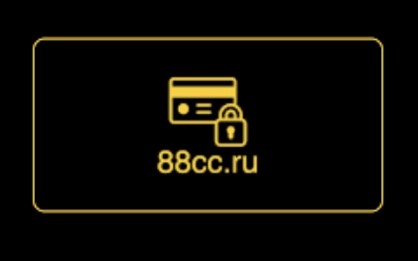NEWS
How to Stay Safe from Credit Card Fraud?

Credit Card Fraud
In today’s digital age, credit card fraud has become a widespread problem, and it can happen to anyone, anywhere. The rise of online shopping and e-commerce platforms has made credit card fraud even more prevalent, making it crucial to take precautions to protect yourself from fraudulent activities. In this article, we will discuss various ways to stay safe from credit card fraud.
What is Credit Card Fraud?
Credit card fraud is a type of identity theft that occurs when someone uses your credit card without your permission to make purchases or obtain cash. The thief may use your card number, name, and other personal information to create a fake credit card or make unauthorized purchases online.
Types of Credit Card Fraud
Credit card fraud can occur in various forms, such as:
- Lost or Stolen Credit Cards: When your credit card is stolen or lost, the thief can use it to make unauthorized purchases.
- Skimming: When a thief uses a skimming device to copy the data on your credit card at a gas station or an ATM machine.
- Phishing Scams: When a thief sends you an email, text message, or phone call pretending to be from your bank, asking for your credit card information.
- Identity Theft: When a thief steals your personal information and uses it to open new credit card accounts in your name.
- Online Shopping Fraud: When a thief uses your credit card information to make unauthorized purchases online. CC sites are used for this purpose.
How Does Credit Card Fraud Happen?
Credit card fraud can happen in various ways, such as:
- Theft of your physical credit card
- Copying your credit card information using skimming devices
- Stealing your personal information through phishing scams or hacking into your accounts
- Intercepting your credit card information during online transactions
Signs of Credit Card Fraud
If you notice any of the following signs, it could indicate that you have become a victim of credit card fraud:
- Unrecognized transactions on your credit card statement
- Receiving credit card bills for accounts you did not open
- Unauthorized withdrawals from your bank account
- Receiving calls from debt collectors about accounts you did not open
Preventive Measures to Stay Safe from Credit Card Fraud
There are various preventive measures you can take to stay safe from credit card fraud, such as:
Keep your Personal Information Safe
- Do not share your personal information such as social security number, date of birth, or credit card information over the phone or email unless you are sure it’s a trusted source.
- Shred documents with sensitive information before disposing of them.
- Do not carry your Social Security card or any credit cards you do not need.
Be Careful with your Card
- Keep your credit card in a safe place, and do not lend it to anyone.
- When making purchases in public places, such as restaurants, keep an eye on your card and make sure it’s not taken away from you.
- Always keep an eye on your card when it’s being used by someone else, such as a cashier.
Monitor your Accounts Regularly
- Check your credit card and bank account statements regularly for any unrecognized transactions.
- Set up alerts for all your
- Set up alerts for all your credit and debit cards to notify you of any transactions.
- Review your credit report annually to make sure all the information is accurate.
Use Secured Websites and Payment Methods
- When shopping online, only use websites that have a secure payment gateway and a lock icon in the address bar.
- Avoid shopping on public Wi-Fi networks, as they are not secure.
- Use credit cards instead of debit cards for online transactions as they offer more protection against fraud.
Update your Software and Applications Regularly
- Keep your computer, mobile phone, and other devices updated with the latest security updates and patches.
- Use anti-virus and anti-malware software to protect your devices from threats.
Secure your Wi-Fi Connection
- Secure your home Wi-Fi network with a strong password and encryption.
- Do not share your Wi-Fi password with anyone outside of your household.
- Avoid using public Wi-Fi networks for any sensitive transactions.
What to Do If You Fall Victim to Credit Card Fraud?
If you fall victim to credit card fraud, take the following steps immediately:
- Contact your bank or credit card company and report the fraud.
- Request to cancel your credit card and request a new one.
- File a report with the Federal Trade Commission (FTC) and the police.
- Monitor your credit report regularly and report any suspicious activity.
Conclusion
Credit card fraud can have severe consequences, such as loss of money, damage to your credit score, and loss of personal information. However, by taking preventive measures, such as keeping your personal information safe, monitoring your accounts, and using secured websites and payment methods, you can reduce the risk of becoming a victim of credit card fraud. Remember to stay vigilant and report any suspicious activity immediately.
Sebastian was born and raised in the busy city of Abbottabad. As a journalist, Saad Mushtaq has contributed to many online publications including the PAK Today and the Huffing Post. In regards to academics, Saad Mushtaq earned a degree in business from the Abbottabad UST, Havelian. Saad Mushtaq follows the money and covers all aspects of emerging tech here at The Hear Up.Thanks










